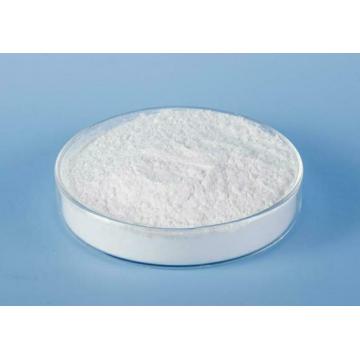No matter which type of plastic packaging is used, it must meet the requirements of green packaging: reduce waste pollution, solve the environmental problems of solvents, and recycle and reuse. Environmental protection requirements, pollution-free green packaging, will be more and more social attention. Therefore, we should vigorously develop green packaging, do a good job of packaging waste disposal and recycling of resources to achieve sustainable development requirements.
Food contact materials: Beware of potentially dangerous chemicals
Remember Bisphenol A? The "baby bottle containing bisphenol A may cause precocious puberty" event has passed almost three years, and the national standards for the safety of baby bottles remain elusive. Recently, the Enterprise Alliance Standard for "Baby and Baby Bottle Safety Requirements" compiled by the China Toys and Baby Products Association has finally been released, filling the gap in China's bottle product country and industry safety standards.
Recently, American scientist Joe Adenngji published a paper in the journal Epidemiology and Public Health, stating that chemicals used in food packaging, storage, and handling may cause long-term harm to human health.
Adtonge said that many potentially dangerous chemicals are found in food contact materials, including the inner coating of cans, the folding carton cover, and the glass bottle closures. A small amount of chemical components can penetrate the food through these materials. With the increase of temperature, the extension of food storage time and the use of certain types of packaging materials, the diffusion of chemicals will be faster.
According to Adetonichi, more than 4,000 chemicals have been found on food packaging materials. For example, asbestos can be used as an indirect food additive in rubber in the United States, and the carcinogen, formaldehyde, is widely used in PET plastic bottles, but only in relatively low amounts. PET plastic bottles are the most commonly used carbonated beverage packaging materials. In addition, formaldehyde can also be penetrated into foods by using melamine formaldehyde cutlery.
Some experts think it is an exaggeration
Some experts disagreed with Adtech's point of view. Ian Musgrave, a pharmacologist at the University of Adelaide, believes that Adetonichi's thesis exaggerates the danger of formaldehyde in food packaging. He said: "A lot of foods contain natural formaldehyde. Decomposing formaldehyde in 100 grams of apples requires at least 20 liters of mineral water in PET bottle cans. According to this, fresh fruits and vegetables should also be marked as "can cause cancer.""We can't The potential for contamination of food by harmful packaging materials is underestimated, but this possibility is minimal. This paper did not pay attention to physiology and other health hazards, but focused on the dangers of micro-permeability of formaldehyde, which could easily lead to unnecessary concerns."
Low-dose chemical research is not deep enough
Professor Ian Rey, Professor Emeritus at the University of Melbourne, said that while the hazards of chemicals have long been known, the research on the long-term harm of low-dose chemicals has not been thoroughly studied. However, many manufacturers have already felt the pressure from the market and consumers. For example, baby bottles containing bisphenol A can no longer be sold, and plasticizer phthalates have also disappeared from the packaging of many foods.
BPA or plasticizers are all caused by food packaging. So far, the origin and harm of plasticizers remain unclear.
The National Food Safety Risk Assessment Center stated that the sources of plasticizers in foods are relatively complex and the substances themselves have the property of easy migration. After many rounds of investigations, investigations and in-depth analysis, they mainly come from two aspects. One is contact. Food plastic containers, pipes, packaging materials and sealing materials migrate into food. The second is the impact of plasticizers on the food in the environment. For example, soil and plasticizers present in the water may also enter the food chain to affect the food.
As for the hazards of plasticizers, the answer given by the National Food Safety Risk Assessment Center is that the effect of plasticizers on human health depends on the amount of intake and the length of time of intake. International animal experiments show that long-term high-dose intake of plasticizers has endocrine disruption and reproductive toxicity, but there are currently no clinical cases of human harm. From the perspective of ensuring human health, according to the research findings of the international authoritative health and health assessment agency, adults will consume DEHP for no more than 3.0 milligrams per day and DBP intake no more than 0.6 milligrams for a lifetime, without causing any health hazards.
Food packaging prohibits the addition of bisphenol A
With the development of economy, people's living standards are continuously improving, and at the same time, more and more attention is paid to physical health. The ban on bisphenol A is the best proof.
Baby bottles, milk cans, baby drinking cups, baby tableware and other food storage containers are all covered by regulations. Bisphenol A is a chemical substance that is widely used in the manufacture of plastics. Most of the plastic containers and packaging used in baby bottles and beverage bottles contain this substance. The debate over whether bisphenol A harms health, especially children's health, has been a longstanding one. Many scientists believe that bisphenol A may exert estrogen-like effects in the body and disturb the metabolic processes in the body. Animal experiments have shown that BPA may be related to breast, prostate, reproductive system, and nervous system diseases, and may also induce certain cancers. According to a Chinese epoxy network expert, the debate over the potential adverse effects of bisphenol A on the human body, especially children's health, has made BPA become infamous. Outside the United States, countries and regions including China and the European Union have removed bottled bisphenol A bottles since last year. The European Union believes that bottles containing bisphenol A will induce precocious puberty in infants and will be officially banned from March 1, 2011; China subsequently banned production of bisphenol A vials in June 2011. Imports and sales will be fully implemented in September. Prohibited...
In summary, the prohibition of bisphenol A will become a global trend, so it must be prepared as a business for the export of related products. On the one hand, product risk verification procedures should be improved, and high-risk raw material and auxiliary qualified supplier approval and approval systems should be established to extend terminal inspections to source control, process supervision, and finished product inspection. On the other hand, we should strengthen contact with the inspection and quarantine department, timely obtain the latest policy trends and standards information, strengthen the key research of alternative substances research, and strive to conduct inspections to authoritative testing agencies to improve the monitoring of bisphenol A and finished product export testing capabilities. Exports are limited.
According to experts, starting from Canada, the first country that has banned bisphenol A, the European Union, Australia, New Zealand, and other countries have introduced similar bans on bisphenol A, and the elimination of products containing bisphenol A ranges from only baby bottles. Products are expanded to different types of infant food containers.





